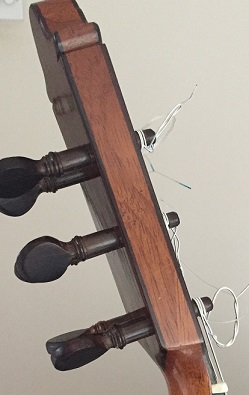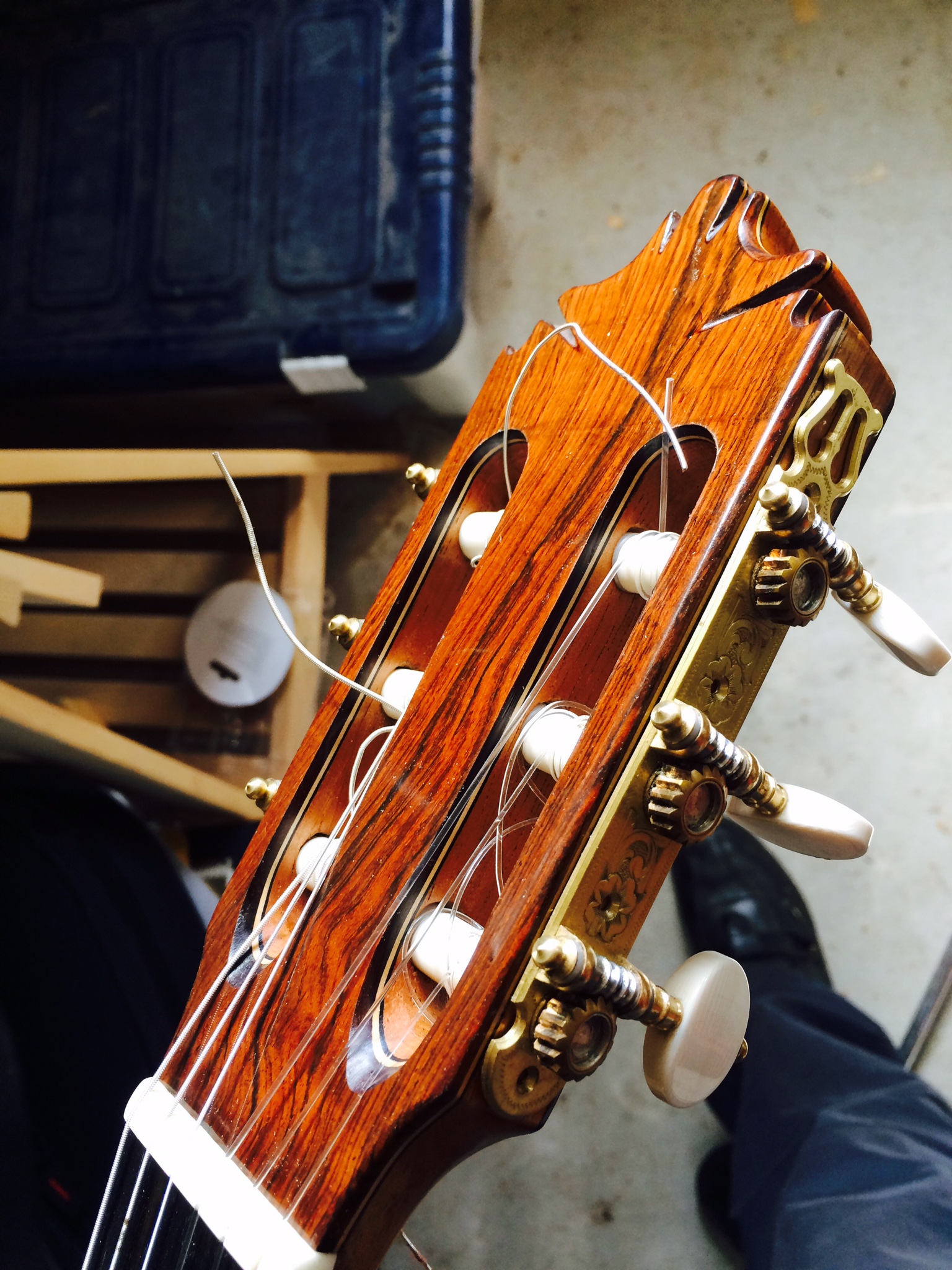|
peter18337 -> Pegs (Jun. 19 2016 21:30:15)
|
I'm new around here and since there are a lot of luthiers on this site, I'd like to throw out a question for general speculation regarding pegs. I'm very partial to pegs. In fact the three guitars that I currently own, two Ramirez and one Conde, they all have pegs and, frankly, I wouldn't own one without pegs. But the thing that interests me is that, given how meticulously, how carefully, and how beautifully these guitars are made with such attention to detail, how crumby the pegs are. Now I can't speak about ALL guitars with pegs but an awful lot that I've come across have poor quality pegs. What happened to those luthiers standards for quality and aesthetics when it came to the pegs? Are they not part of the guitar? Are they not out there for everyone to see and of course for the guitarist to operate? ( I'm not including the new "mechanical" pegs---they're in a different category).
When I first brought my Conde back from Spain, the pegs were so ugly, so ill-fitting, so poorly made, that I couldn't stand it. So I went to a violin maker in New York (where I was then living at the time) and asked him to retrofit my pegs with his which were magnificent. Well, after looking down his nose at me and especially the guitar (after all, he was a violin maker) he reluctantly agreed to do it. The pegs he used were from Germany and they were absolutely gorgeous: slightly longer, beautifully finished ebony with a very comfortable grip with a nicely finished mother of pearl dot in the center of the grip set into a tiny brass ring. The luster and shine of the wood was perfect. I couldn't be happier and I thought , 'Why aren't the guitar makers doing this?'
So there in is my question----Why aren't the guitar makers doing this?
|
|
|
|


